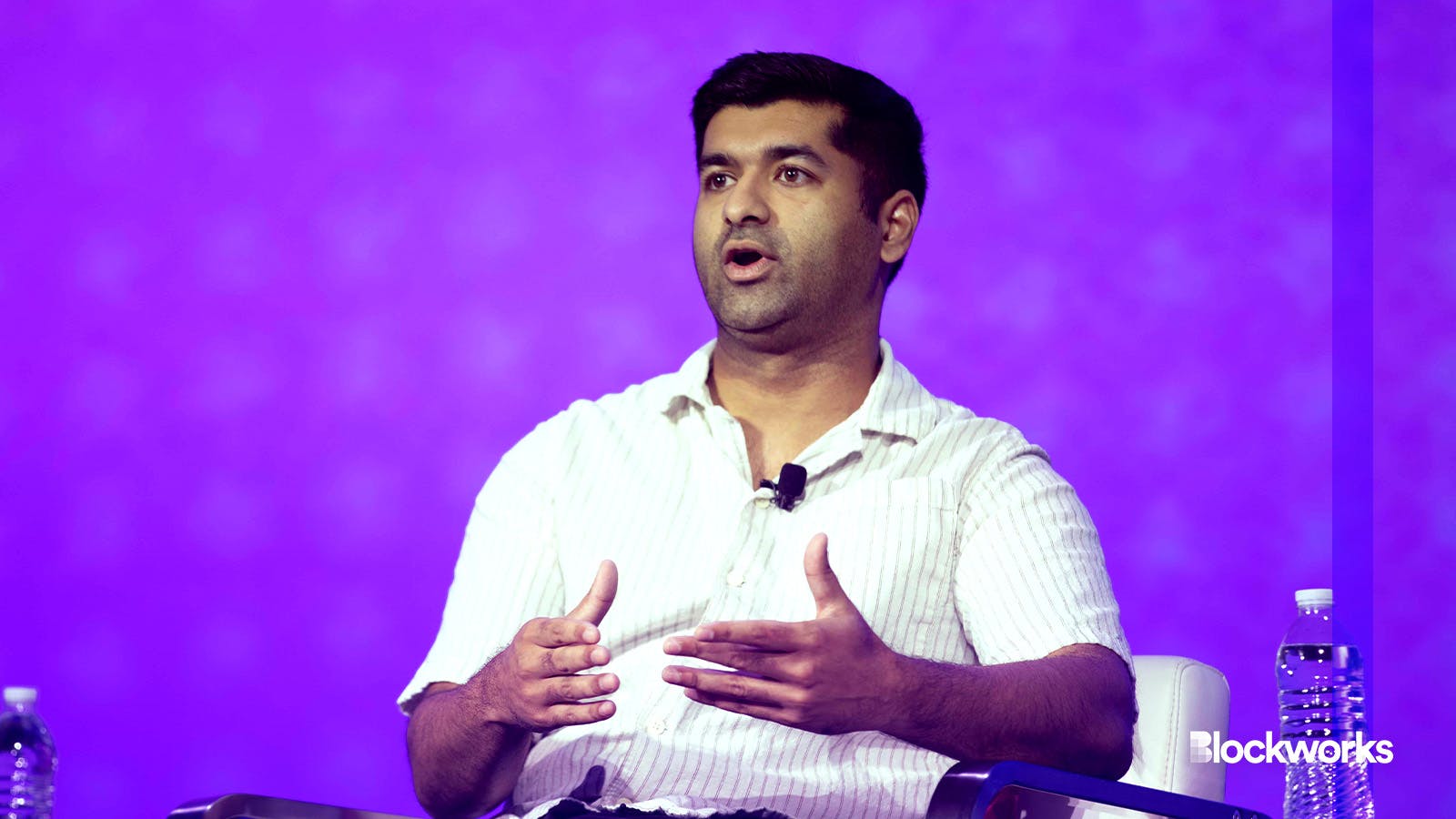Eclipse secures $50M ahead of mainnet launch
The Series A round was co-led by Placeholder and Hack VC

Eclipse founder Neel Somani | Permissionless II by Blockworks
Modular blockchain Eclipse has secured $50 million in a Series A funding round led by Placeholder and Hack VC, bringing its total funding to $65 million.
Other investors including Polychain Capital, Delphi Digital, Maven 11, DBA and Fenbushi Capital also participated in the round.
Blockchain modularity refers to the different design layers of a blockchain stack. These include execution, settlement, consensus and data availability.
Read more: A spicy salvo launched in the monolithic vs modular debate
For blockchains like Bitcoin, Ethereum and Solana, this activity is carried out by the same set of nodes. Modular blockchains, on the other hand, divide these different functionalities into separate specialized layers.
Neel Somani, the founder of Eclipse, told Blockworks that he believes that there are no layer-2s on Ethereum today that are built for scale.
“There are many theoretical solutions, and plenty of infrastructure being funded which will mitigate the issues of liquidity fragmentation in the coming years, but our view is that there is tons of low-hanging fruit at the execution layer which we will happily incorporate to provide a superior user experience on Ethereum,” Somani said. “Eclipse is intended to be the most performant layer-2.”
Eclipse is built using the Solana Virtual Machine (SVM) for execution, Celestia for data availability, and Ethereum for settlement and consensus.
Read more: Eclipse is using Solana’s virtual machine to launch an Ethereum L2
Although the Dencun upgrade is just around the corner, which will make data posting much more affordable through the introduction of EIP 4844. Somani notes that Eclipse will continue to use Celestia for data availability however, at least for the time being.
“Despite the Polymarket poll saying blobs will be practically free after Dencun, I find it unlikely that this will actually be the case,” Somani said.
The team may consider publishing some data to Ethereum following full Danksharding, like state diffs.
Read more: For Ethereum rollups, dealing with data remains a bottleneck
Despite these considerations, Somani notes that publishing all transactions onto a data availability layer, even for zk rollups, has advantages. This approach ensures transparency, enabling anyone to promptly verify if a zk proof system has been tampered with or compromised.
“We are constantly monitoring DA advancements on the Ethereum layer-1. At the same time, for infrastructure it’s always wise to place a premium on any dependencies that are stable and live today,” he said.
The company noted that it will launch mainnet in Q2 of 2024. It has so far released a devnet and testnet version of its protocol, with several dapps already testing out its infrastructure. These include NFT marketplace Rarible, oracle infrastructure Pyth Network and lending protocol Solend.
Following its mainnet launch, the company said it would sponsor hackathons and accelerators and organize community events for its users.
Start your day with top crypto insights from David Canellis and Katherine Ross. Subscribe to the Empire newsletter.





